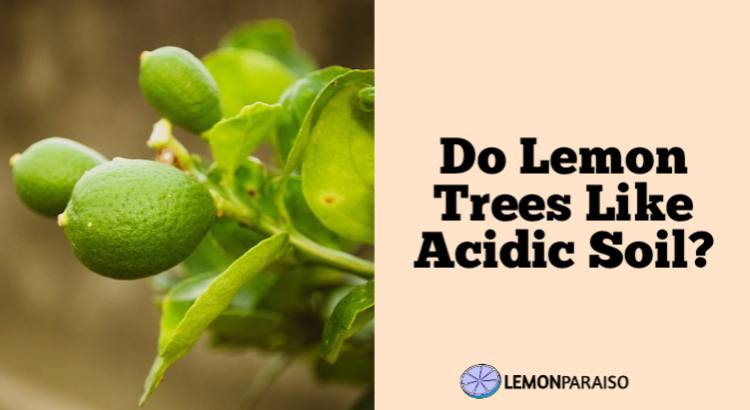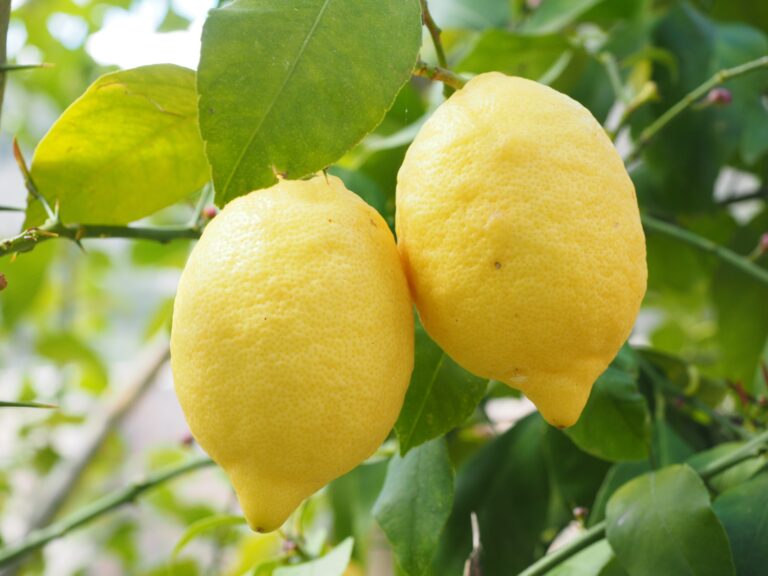Do Lemon Trees Like Acidic Soil?

Lemon trees are a popular fruit-bearing tree known for their fragrant flowers and sour fruit. Growing lemon trees can be an enjoyable and rewarding experience for many gardeners, but it requires proper care and attention to ensure their optimal growth and fruit production.
One factor that can significantly impact the growth and health of lemon trees is the pH level of the soil they are planted in.
Do Lemon Trees Like Acidic Soil?
Lemon trees indeed thrive in acidic soil, as it allows for the proper absorption of essential nutrients, which in turn promotes healthy growth and fruit production.
Acidic soil also helps prevent certain diseases and keeps harmful elements from becoming toxic to the tree. Ideally, lemon trees should be grown in well-draining soil with a slightly acidic pH level to ensure their long-term health and productivity.
What Ph Level Do Lemon Trees Prefer?
Lemon trees prefer a pH level between 5.5 and 6.5, which is considered slightly acidic. At this pH range, the soil conditions are optimal for nutrient availability and absorption, allowing the tree to grow strong and produce a bountiful harvest.
Soil that is either too acidic or too alkaline can inhibit the tree’s ability to absorb vital nutrients and lead to poor growth and fruiting.
Can Lemon Trees Grow In Alkaline Soil?
Lemon trees can tolerate slightly alkaline soil, but they may struggle with nutrient deficiencies and poor growth as a result.
When grown in alkaline soil, lemon trees often experience reduced nutrient availability, particularly iron and zinc, which can cause leaf chlorosis and other growth issues. It is best to amend alkaline soil to lower the pH and create a more suitable environment for the tree.
How Do I Make My Soil More Acidic For Lemon Trees?
To make your soil more acidic for lemon trees, you can use several different methods, such as adding organic matter like peat moss or compost, using elemental sulfur or aluminum sulfate, or applying an acidic fertilizer specifically formulated for citrus trees.
It is essential to monitor the soil’s pH level and make adjustments as needed to maintain optimal growing conditions.
What Are The Signs Of Acidic Soil For Lemon Trees?
Lemon trees growing in acidic soil typically exhibit healthy growth, dark green foliage, and bountiful fruit production. The tree’s ability to absorb essential nutrients like iron, zinc, and manganese is enhanced in slightly acidic soil, promoting overall health and vigor.
Signs of overly acidic soil may include stunted growth, yellowing leaves, or poor fruit development, indicating a need to adjust the soil’s pH.
What Type Of Fertilizer Is Best For Lemon Trees In Acidic Soil?
A slow-release, granular fertilizer specifically formulated for citrus trees is ideal for lemon trees in acidic soil. These fertilizers often contain a balanced blend of nitrogen, phosphorus, potassium, and essential micronutrients, such as iron, zinc, and manganese, which are crucial for healthy growth and fruit production. Be sure to follow the manufacturer’s instructions for proper application rates and timing.
Can I Use Vinegar To Acidify Soil For Lemon Trees?
Vinegar can be used to temporarily acidify soil for lemon trees, but it is not a long-term solution. Diluted vinegar can be applied to the soil to lower the pH temporarily, but its effects will diminish over time as the soil reverts to its original pH level.
It is best to use more stable and long-lasting methods, such as adding organic matter or elemental sulfur, to maintain the desired pH level.
How Often Should I Test The Ph Level Of Soil For Lemon Trees?
It is a good practice to test the soil pH for lemon trees at least once or twice a year, preferably in the spring and fall.
Regular testing allows you to monitor changes in the soil’s acidity and make adjustments as needed to maintain the optimal pH range for healthy growth and fruit production. Soil pH can change over time due to factors such as rainfall, irrigation, and fertilization.
What Other Plants Prefer Acidic Soil Like Lemon Trees?
Many plants thrive in acidic soil, similar to lemon trees. Some examples include blueberries, azaleas, rhododendrons, camellias, gardenias, and hydrangeas. These plants often require slightly acidic soil conditions to maximize nutrient absorption and promote healthy growth.
By understanding the pH preferences of various plants, you can create a diverse and thriving garden that caters to the specific needs of each species. Grouping plants with similar pH requirements can also simplify soil management and overall garden maintenance.
Can I Grow Lemon Trees In Containers With Acidic Soil?
Yes, lemon trees can be grown in containers with acidic soil, making them an excellent choice for urban gardeners or those with limited garden space.
To ensure success, choose a well-draining potting mix designed for citrus trees or amend a standard potting mix with peat moss or other acidic components. Ensure the container has proper drainage, and monitor the soil’s pH regularly to maintain optimal growing conditions.
What Are The Benefits Of Growing Lemon Trees In Acidic Soil?
Growing lemon trees in acidic soil offers several benefits. Firstly, lemon trees can absorb essential nutrients more efficiently in slightly acidic soil, which promotes healthy growth, vibrant foliage, and abundant fruit production.
Secondly, acidic soil helps prevent certain diseases and reduces the potential toxicity of elements such as aluminum. Overall, maintaining the appropriate pH level in the soil ensures a robust and productive lemon tree, providing you with a plentiful supply of fresh, homegrown citrus fruit.



